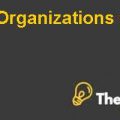
The current regulations and legislations have increased the power of U.S. listed companies’ shareholders to influence the governance of their companies, while also persuaded the companies’ board and management to enhance the communications with the shareholders, with unexpected outcomes. Many proxy issues have been rising in recent that must be voted on by shareholders. However, according to the Securities Exchange Commission (SEC) rule, a fiduciary obligation is granted to various shareholders to cast a vote on each item that they face, driving various other shareholders to transfer their voting rights to proxy advisors. Institutional Shareholder Services (ISS) and Glass, Lewis & Co. (Glass Lewis), the largest proxy advisory institutes, have the significant influence on the proxy advisory industry and have thousands of institutional clients, which reflected that the corporate governance policies of these two firms significantly influence shareholder votes. The authors analyzed the proxy voting on 264 stock option repricings for 251 individual companies and concluded that those repricings that were positioned with proxy advisory institute’s recommendations marked lower stock returns, ineffective operations, and a high probability of employee and executive turnover. This negative effect on the value of shareholder demands to deeply analyze the role of proxy advisors’ guidelines on other more imperative voting issues like equity compensation plans, director elections, or executive compensation. The regulatory perspective on the U.S. proxy advisory market is crucial globally, as the regulatory selections of the SEC are a standard for other national and local governing bodies.













